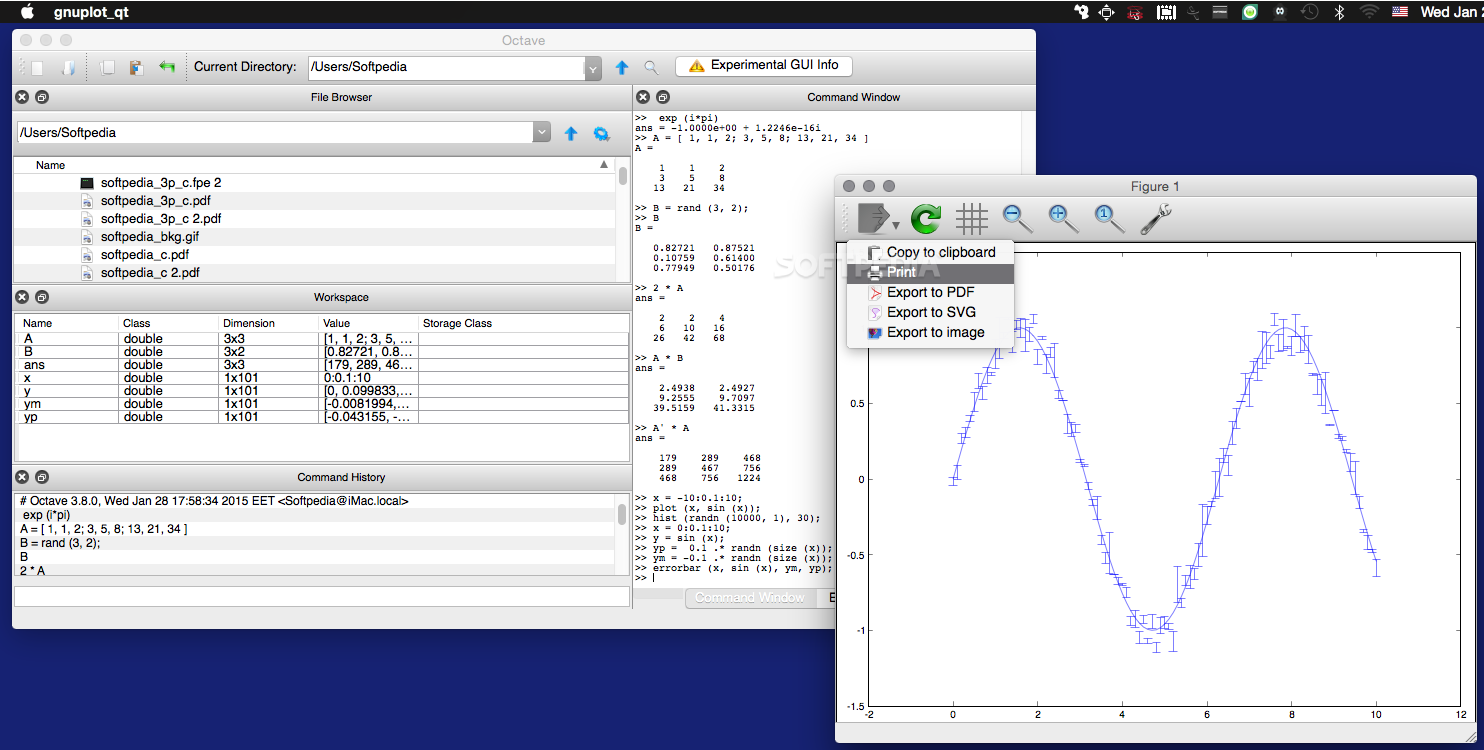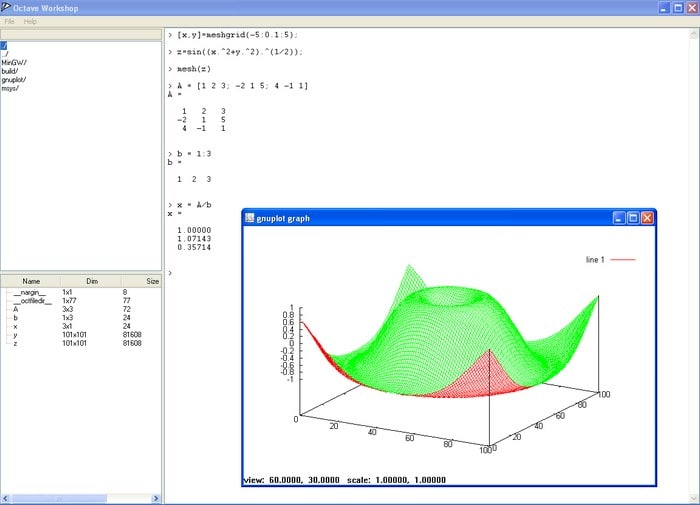Octave (itch) Mac OS
The Missing Package Manager for macOS (or Linux). It’s all Git and Ruby underneath, so hack away with the knowledge that you can easily revert your modifications and merge upstream updates. Octave is free software licensed under the GNU General Public License (GPL). Assuming you have Mercurial installed on your machine you may obtain the latest development version of Octave sources with the following command. Roblox Noob OS V. Based on a video 'Roblox Noob OS'. (In MAC OS not everything works well). AmpliTube can work as a 64-bit plug-in for the most popular DAW (such as Pro Tools, Logic, GarageBand, Cubase, Live, Reaper) or can be used in stand-alone mode in Mac OS X and Windows. The plug-in and standalone versions offer the same function and sound, but the standalone version also offers a built-in 8-track recorder and DAW, plus a 4-track.
The MacPorts Project Official Homepage
The MacPorts Project is an open-source community initiative to design an easy-to-use system for compiling, installing, and upgrading either command-line, X11 or Aqua based open-source software on the Mac operating system. To that end we provide the command-line driven MacPorts software package under a 3-Clause BSD License, and through it easy access to thousands of ports that greatly simplify the task of compiling and installing open-source software on your Mac.
We provide a single software tree that attempts to track the latest release of every software title (port) we distribute, without splitting them into “stable” Vs. “unstable” branches, targeting mainly macOS High Sierra v10.13 and later (including macOS Big Sur v11). There are thousands of ports in our tree, distributed among different categories, and more are being added on a regular basis.
Getting started
For information on installing MacPorts please see the installation section of this site and explore the myriad of download options we provide and our base system requirements.
If you run into any problems installing and/or using MacPorts we also have many options to help you, depending on how you wish to get get in touch with us. Other important help resources are our online documentation, A.K.A The MacPorts Guide, and our Trac Wiki server & bug tracker.
Latest MacPorts release: 2.6.4
Getting involved: Students
A good way for students to get involved is through the Google Summer of Code. GSoC is a program to encourage students' participation in Open Source development and offers a stipend to work on the project with an organization for three months. MacPorts has been participating in the program since 2007! We shall participate next year as well. You may find past GSoC projects here.
We have a list of ideas with possible tasks for MacPorts and additional information about the process at wiki/SummerOfCode. We are always open to new ideas. Research on the idea, draft an initial proposal and get it reviewed.

Getting involved
There are many ways you can get involved with MacPorts and peer users, system administrators & developers alike. Browse over to the “Contact Us” section of our site and:
- Explore our mailing lists, either if it is for some general user support or to keep on top of the latest MacPorts developments and commits to our software repository.
- Check out our Support & Development portal for some bug reporting and live tutorials through the integrated Wiki server.
- Or simply come join us for a friendly IRC chat if you wish for more direct contact with the people behind it all.
If on the other hand you are interested in joining The MacPorts Project in any way, then don't hesitate to contact the project's management team, “PortMgr”, to explain your particular interest and present a formal application. We're always looking for more helping hands that can extend and improve our ports tree and documentation, or take MacPorts itself beyond its current limitations and into new areas of the vast software packaging field. We're eager to hear from you!
Version 6.1.0:Octave (itch) Mac Os Pro
General improvements
Mac Os Download

Octave (itch) Mac Os X
- The intersect, setdiff, setxor, union, and unique functions accept a new sorting option 'stable' which will return output values in the same order as the input, rather than in ascending order.
- Complex RESTful web services can now be accessed by the webread and webwrite functions alongside with the weboptions structure. One major feature is the support for cookies to enable RESTful communication with the web service. Additionally, the system web browser can be opened by the web function.
- The linspace function now produces symmetrical sequences when the endpoints are symmetric. This is more intuitive and also compatible with recent changes made in Matlab R2019b.
- The underlying algorithm of the rand function has been changed. For single precision outputs, the algorithm has been fixed so that it produces values strictly in the range (0, 1). Previously, it could occasionally generate the right endpoint value of 1 (See bug #41742). In addition, the new implementation uses a uniform interval between floating point values in the range (0, 1) rather than targeting a uniform density (# of random integers / length along real number line).
- Numerical integration has been improved. The quadv function has been re-written so that it can compute integrands of periodic functions. At the same time, performance is better with ~3.5X fewer function evaluations required. A bug in quadgk that caused complex path integrals specified with 'Waypoints' to occasionally be calculated in the opposite direction was fixed.
- The edit function option 'editinplace' now defaults to true and the option 'home' now defaults to the empty matrix []. Files will no longer be copied to the user’s HOME directory for editing. The old behavior can be restored by setting 'editinplace' to false and 'home' to '~/octave'.
- The format command supports two new options: uppercase and lowercase (default). With the default, print a lowercase ‘e’ for the exponent character in scientific notation and lowercase ‘a-f’ for the hex digits representing 10-15. With uppercase, print ‘E’ and ‘A-F’ instead. The previous uppercase formats, E and G, no longer control the case of the output.
- Complete list of changes can be found here